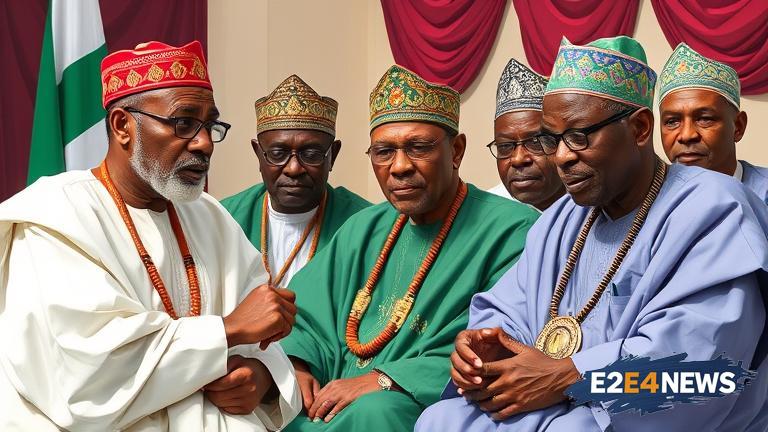In a recent development, traditional rulers in Lagos, Nigeria have made a demand for a 5% allowance from the local government allocation. This move has sparked a debate about the role of traditional rulers in modern governance and their entitlement to a share of public funds. The traditional rulers, who are also known as obas, argue that they play a crucial role in maintaining peace and order in their communities, and therefore deserve a share of the local government allocation. They claim that their allowance has not been increased in years, despite the rising cost of living and the increasing demands on their time and resources. The obas also point out that they are responsible for resolving disputes, providing guidance and counsel to their subjects, and promoting community development. They argue that these responsibilities require significant financial resources, which they currently do not have. The demand for a 5% allowance is seen as a way for the traditional rulers to supplement their income and improve their ability to serve their communities. However, not everyone is in support of the demand. Some critics argue that the traditional rulers are already well taken care of by the government, and that they do not need an additional allowance. Others argue that the demand is unreasonable, given the current economic climate and the many competing demands on public funds. Despite these criticisms, the traditional rulers remain adamant that their demand is reasonable and justified. They point out that they are not asking for a handout, but rather a recognition of their value and contribution to the community. The demand has also sparked a wider debate about the role of traditional rulers in modern governance. Some argue that traditional rulers are an important part of Nigerian culture and identity, and that they should be supported and recognized by the government. Others argue that traditional rulers are a relic of the past, and that they have no place in modern governance. The Lagos State Government has yet to respond to the demand, but it is likely that the issue will continue to be debated in the coming weeks and months. The demand for a 5% allowance is not the only issue that traditional rulers in Lagos are facing. Many of them are also struggling to maintain their palaces and other infrastructure, which are in a state of disrepair. The traditional rulers are also facing challenges in terms of their relationship with the state government, which they see as not recognizing their value and contribution to the community. Despite these challenges, the traditional rulers remain committed to their role and responsibilities, and are determined to continue serving their communities to the best of their ability. The demand for a 5% allowance is seen as a way for the traditional rulers to assert their importance and relevance in modern governance. It is also seen as a way for them to improve their financial situation, and to better serve their communities. The issue is complex and multifaceted, and it is likely that it will take some time to resolve. However, one thing is clear: the traditional rulers in Lagos are determined to make their voices heard, and to ensure that their contributions to the community are recognized and valued. The demand for a 5% allowance is just one part of a wider conversation about the role of traditional rulers in modern governance, and the importance of recognizing and supporting their contributions to the community. As the debate continues, it is likely that we will see more demands and requests from traditional rulers, as they seek to assert their importance and relevance in modern governance. The Lagos State Government will need to carefully consider the demand, and to weigh the competing interests and priorities. Ultimately, the decision will depend on a range of factors, including the financial situation of the state government, the priorities of the community, and the role of traditional rulers in modern governance. The demand for a 5% allowance is an important issue, and one that will have significant implications for the traditional rulers, the state government, and the community as a whole. It is an issue that will require careful consideration, and a thoughtful and nuanced approach. As the debate continues, it is likely that we will see more discussion and analysis of the issue, and a range of different perspectives and opinions. The traditional rulers in Lagos are determined to make their voices heard, and to ensure that their contributions to the community are recognized and valued. The demand for a 5% allowance is just one part of a wider conversation about the role of traditional rulers in modern governance, and the importance of recognizing and supporting their contributions to the community.
